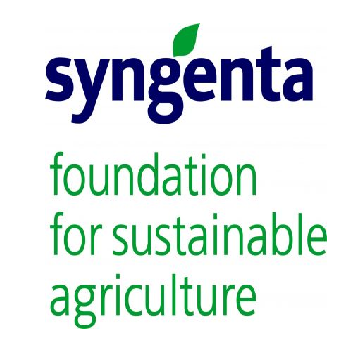Months after the federal government launched the 10-year national rice strategy, stakeholders are strengthening the capacity to take advantage of the policy to reap its benefits.
A leading global agricultural development organization, Syngenta Foundation for Sustainable Agriculture (SFSA) is partnering others to improve the value chain aimed at enhancing productivity in Nigeria.
The foundation is specifically collaborating with Derftdan Ltd to strengthen the Rice Value Chain in Nigeria.
Speaking on the development in a workshop in Abuja, head of agricultural services operations of the foundation, Robert Berlin, said that the meeting was to verify and validate the assessment carried out by SFSA and Derftdan on targeted interventions to strengthen rice value chain.
ChatGPT and the Turing Test: Can machines truly mimic human intelligence?
How Zaria PHCs operate in unsecured environment
“This workshop comes few months after the federal government of Nigeria launched a ten year national rice development strategy aimed towards achieving self-sufficiency in rice production. The aim here is to strengthen the value chain, analyze the study recommendations and explore as well as translate China’s own successful value chain technologies and practices into approaches that can be adapted in Nigeria.”
Berlin commended the participants for attending the validation workshop.
In his keynote address, the minister of agriculture and rural development, Dr Mohammed Mahmood Abubakar, represented by deputy director, rice value chain, Bashir Umar, commended the foundation for its unrelenting contribution towards strengthening the rice value chain in Nigeria.
“I want to assure you of the FG’s readiness to support smallholder farmers and bridge the funding gap to strengthen rice value chain in the country.”
He also enjoined the participants to effectively make use of what they gained in the workshop and be committed towards the implementation of the resolutions made at the end of the workshop.
Speaking at the sideline of the event, the country programme manager of the foundation, Isaiah Gabriel, said the goal of the study conducted by the foundation and Derftdan Resources Ltd was to provide an overview of rice production, post-harvest processing and marketing segments and address the inefficiencies in the entire supply chain.
“Our goal is to identify challenges and gaps, and explore strategies for translating China’s successful value chain practices into approaches that can be adapted in the country to boost its rice production and processing,” said Isaiah Gabriel.
He added that the study was supported by 2,249 farmers’ surveys that cut across eight states of Cross River, Niger, Edo, Jigawa, Kebbi, Ebonyi, Kano and Nasarawa.
Also speaking at the event, a senior Agribusiness consultant at Derftdan, Mr. Richard Ogundele, identified some of the gaps in the rice sector.
According to him, opportunities to improve rice production in Nigeria cut across the entire value chain, but particular need for improvement lies in the areas of quality seeds, mechanization, irrigation, processing and extension delivery services.
“Once we get the rice quality standard right, every other thing will be in order. The nation needs to be focused and firm in its policy on rice, identifying market-oriented and export dependent policy as the surest way to meet global demand,” said Richard Ogundele.
He further stated that the stakeholders agreed during the panel discussions that the known problems associated with the country’s rice value chain still exist, there was need to use innovative technology to enhance productivity, address security issues pragmatically and come up with a public private dialogue platform for the rice sector.
According to him, emphasis was laid on implementation of the various recommendations with a view to acting on the solutions proposed during the event.
Other key stakeholders at the event such as Rice Farmers Association of Nigeria, National Cereals Research Institute all reiterated their commitment towards ensuring that the resolutions made at the end of the workshop are implemented.

 Join Daily Trust WhatsApp Community For Quick Access To News and Happenings Around You.
Join Daily Trust WhatsApp Community For Quick Access To News and Happenings Around You.


